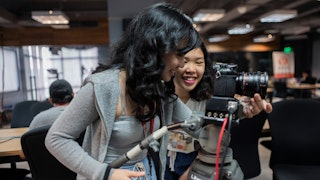Open Society Foundations Support Smallholder Farmers Facing Climate Risk
media@opensocietyfoundations.org
+1 212-548-0378
NEW YORK—The Open Society Foundations are investing in an effort to help smallholder farmers survive severe weather events and natural catastrophes, as part of their broad drive to mitigate the impacts of climate change.
Open Society’s impact investing arm, the Soros Economic Development Fund (SEDF), is committing $10 million to the InsuResilience Investment Fund—which in turn invests in companies that offer affordable insurance products for smallholders and microenterprises exposed to climate-related risks, as well as technology platforms that enable the creation and distribution of these insurance products.
InsuResilience targets smallholders making less than $15 a day, with a specific focus on those who are particularly exposed to the risk of losing crops or livestock due to climate change–related flooding, droughts, and other natural catastrophes.
The fund hopes to reach 100,000 low-income households around the world.
SEDF's investment is part of the final close of the fund, which was launched in 2017 as a $43 million fund with support from the German Development Bank KFW. This final close will raise the fund’s total value to above $75 million.
The fund is a private sector component of a broader effort, launched in November 2017 by the G20 group of industrialized nations, known as the InsuResilience Global Partnership for Climate and Disaster Risk Finance and Insurance Solutions. The Partnership’s central objective is to increase resilience amongst the most poor and vulnerable people with a particular focus on climate change risk.
“The InsuResilience Investment Fund is the only entirely private sector initiative within this broader effort to expand affordable insurance to those who are most at risk from the threat of climate change,” said Catherine Cax, SEDF’s director of investments. “We hope to contribute to a success story that will serve as a catalyst to bring other private sector investment into this critical area. While initiated before COVID-19, this investment speaks to the moment by supporting vulnerable communities that are already disproportionally at risk.”
SEDF also hopes that innovative insurance products tailored for self-employed smallholder farmers will inspire new ideas for suitable insurance products, targeting informal workers living in urban and rural settings who are also impacted by climate change or natural catastrophes, and broadening the reach of insurance to vulnerable populations.
The InsuResilience fund is managed by Blue Orchard, which was set up in 2001 as the world’s first commercial manager of microfinance debt investments. Blue Orchard, which is majority-owned by Schroeders plc, manages over approximately $3.5 billion in assets, and operates in emerging and frontier markets worldwide.
This transaction is one of a batch of social impact investments, totaling $38 million, that SEDF has made since March across a range of sectors, including gender, climate adaptation insurance, economic development, human rights and security technology, and health care.
SEDF, and the Open Society Economic Justice Program of which it is a part, work globally to promote economic systems and practices that build more equitable, sustainable, and democratic societies. SEDF is responding to the COVID-19 crisis by ramping up its investment work in areas that address the plight of the poorest and most marginalized.

